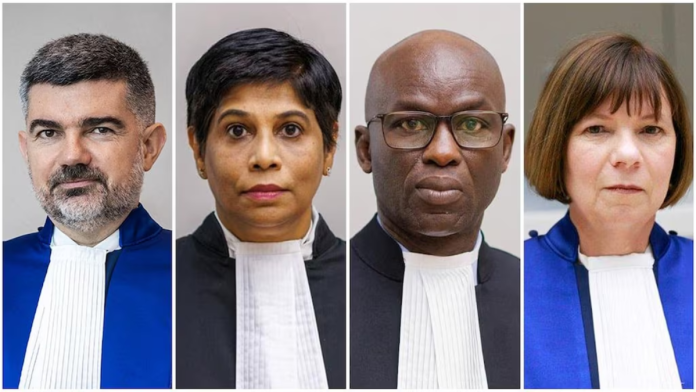The Trump administration has taken a dramatic step by imposing sanctions on Canadian judge Kimberly Prost, who serves on the International Criminal Court (ICC). Prost helped authorize an investigation into alleged crimes involving U.S. personnel in Afghanistan. Other judges connected to investigations of Israeli officials were also sanctioned.
The U.S. State Department said the sanctions freeze any assets the judges may hold in U.S. jurisdictions. In addition to Prost, the sanctions target Nicolas Guillou from France, Nazhat Shameem Khan from Fiji, and Mame Mandiaye Niang from Senegal. According to the department, the sanctions are linked to the judges’ roles in investigating alleged war crimes in Afghanistan and Israel.
The ICC strongly criticized the U.S. actions, calling them an attack on the independence of the court. A statement from the ICC described the sanctions as a “flagrant attack” on a judicial body that represents 125 countries worldwide. The court added that such measures undermine the rules-based international order and the rights of millions of victims globally.
US use of the term “sanctions” on India revives memories of 1998 penalties
U.S. officials, including Secretary of State Marco Rubio, defended the sanctions. Rubio called the ICC a “national security threat” and accused it of overstepping its authority. The statement criticized the court for targeting the U.S. and Israel, two countries that do not recognize the ICC’s authority.
Sanctions Target Key ICC Figures
This latest round of sanctions comes just months after the Trump administration first imposed similar measures on other ICC judges, including then-chief prosecutor Fatou Bensouda. It marks an escalation in the U.S. government’s efforts to push back against international scrutiny of its military and political leaders.
Kimberly Prost played a key role in the ICC’s March 2020 decision to allow investigations into alleged war crimes and crimes against humanity in Afghanistan since 2003. The investigation initially included U.S. personnel, although recent proceedings have shifted focus toward crimes committed by the Afghan government and Taliban forces.
Other judges affected include those involved in issuing arrest warrants for high-profile Israeli officials, such as Prime Minister Benjamin Netanyahu and former defense chief Yoav Gallant, over alleged crimes in Gaza. A warrant was also issued for Hamas official Mohammed Diab Ibrahim al-Masri, also known as Mohammed Deif. These sanctions extend beyond judges, also impacting deputy prosecutors like Khan and Niang, freezing any assets or financial interests they hold in the United States.
The U.S. move drew swift criticism from France and the United Nations. France described the judges’ work as essential to the fight against impunity, while the UN warned that sanctions could severely disrupt the ICC’s operations. A UN spokesperson said the measures create “serious impediments” to the functioning of the prosecutor’s office.
ICC’s Global Role and Investigations
The International Criminal Court was established in 2002 to investigate and prosecute genocide, crimes against humanity, and war crimes. While it has 125 member countries, some nations—including the United States, Israel, Russia, and China—do not recognize its authority.
The ICC has been involved in several high-profile investigations. In addition to Afghanistan, it has cases related to the Israel-Hamas conflict and the war in Ukraine. Other ongoing inquiries include allegations in Sudan, Myanmar, the Philippines, and Venezuela.
Despite the U.S. opposition, the ICC says it will continue its work according to international law, regardless of sanctions or political pressure. The court emphasizes its commitment to impartiality and the legal framework agreed upon by member states.
The latest sanctions have sparked an international debate about the independence of global judicial institutions and the ability of countries to hold officials accountable for alleged crimes.


